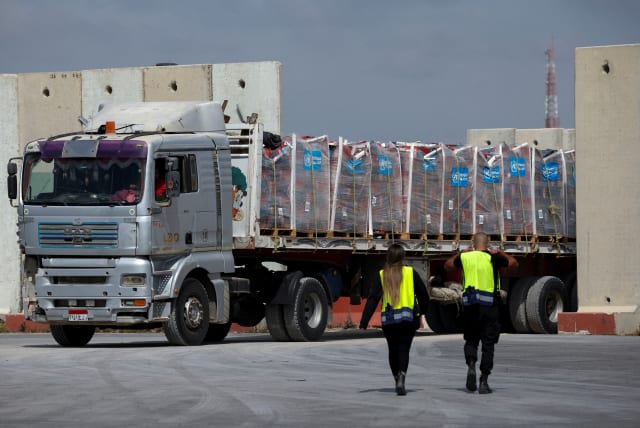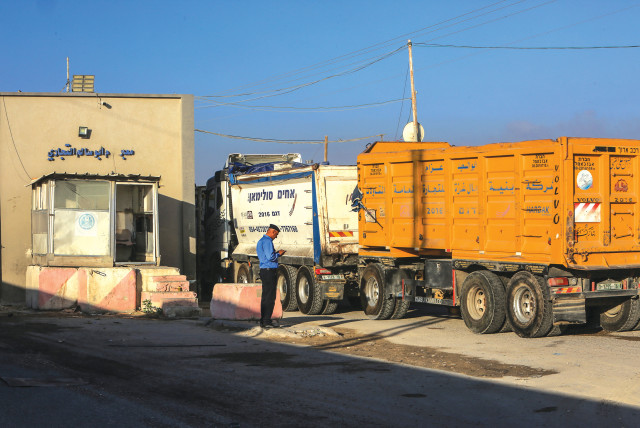Looting adds to logistical woes of Gaza aid delivery by sea

Operations have been disrupted several times by rough seas hampering or damaging the pier, as well as by security considerations on land.
A US-operated temporary pier delivering aid to war-ravaged Gaza faces a mountain of logistical challenges, the most recent of which is looting, officials said on Wednesday.
The 1,200-foot (370-meter) long floating pier, put into operation in May, receives aid pre-screened in Cyprus, which spearheaded an effort to open an additional route of humanitarian assistance by sea.
But operations have been disrupted several times by rough seas hampering or damaging the pier, as well as by security considerations on land. Despite the challenges, both Cyprus and the US vowed the delivery of aid would continue.
Although the pier has allowed international aid to be brought to shore by skirting bottlenecks on land routes, supplies have been piling up in recent days in a marshaling area on the Gazan coast while the U.N. conducts a review of security arrangements.
"I have never seen a more challenging or more complex environment for the humanitarian community to work," said Doug Stropes, Division Chief for the USAID Bureau for Humanitarian Assistance, who cited his experience of working both in Latin America and Africa.
In addition to working in a conflict zone and the logistical challenges of the pier itself, looting aid trucks now "appeared to have expanded beyond just self-distribution," he said.
Stropes elaborates on aid distribution situation
"It expanded recently beyond just those in need stopping the vehicles and getting the assistance out, and it appears to be organized - not in the sense of a large scale organization but there are organized elements that are stopping and taking the commodities from the trucks," he said.
Speaking at Larnaca Port, in Cyprus, where lorries carrying aid are X-rayed in the presence of Israeli and Cyprus customs before being loaded on to ships, US aid officials said that as of June 25, almost 7,000 metric tons of assistance had arrived in Gaza via Cyprus.
Nearly 1,000 metric tons had been collected for further distribution within the territory by U.N. agencies before the security review started, keeping almost 6,000 tons now in a secure perimeter on the Gazan coast.
US and Cyprus officials said there would be a constant flow of vessels to the pier, while discussions had already started on how to keep up deliveries of aid from Cyprus when the pier could no longer be used.
"We have ideas which are being discussed among the core group," said Cypriot Foreign Minister Constantinos Kombos.
"What all of this effort represents is the commitment of the United States to exhaust every possible avenue to alleviate the suffering of the Palestinian people who are facing catastrophic levels of food insecurity," said Julie Fisher, the US Ambassador to Cyprus.
Jerusalem Post Store
`; document.getElementById("linkPremium").innerHTML = cont; var divWithLink = document.getElementById("premium-link"); if (divWithLink !== null && divWithLink !== 'undefined') { divWithLink.style.border = "solid 1px #cb0f3e"; divWithLink.style.textAlign = "center"; divWithLink.style.marginBottom = "15px"; divWithLink.style.marginTop = "15px"; divWithLink.style.width = "100%"; divWithLink.style.backgroundColor = "#122952"; divWithLink.style.color = "#ffffff"; divWithLink.style.lineHeight = "1.5"; } } (function (v, i) { });

